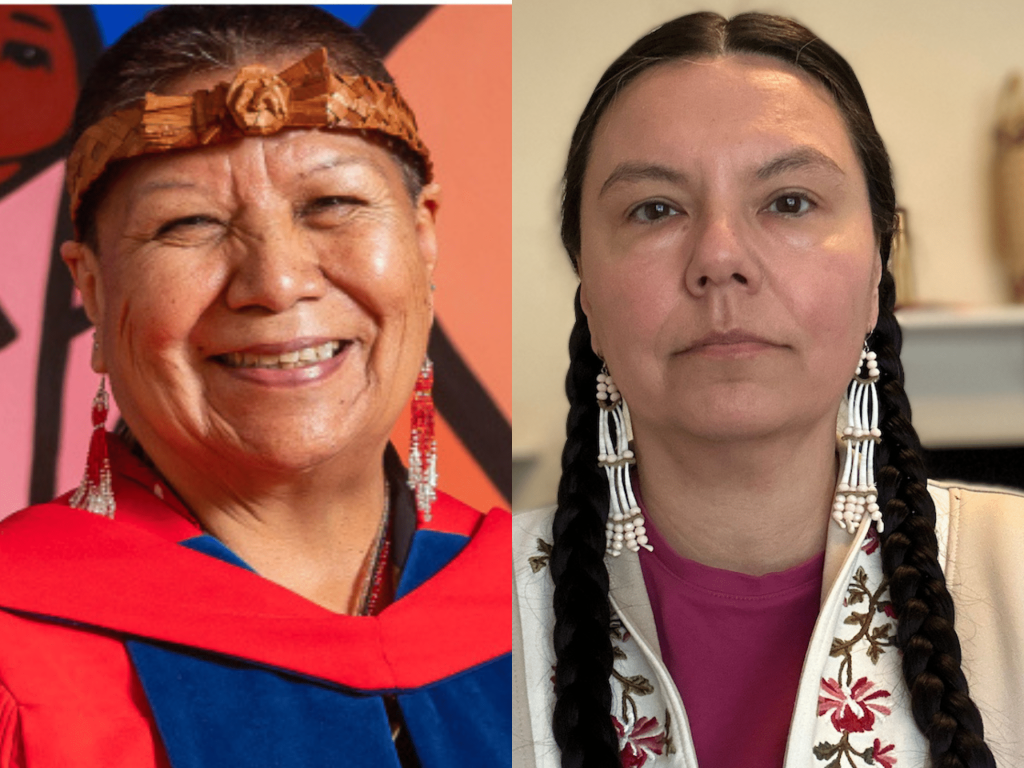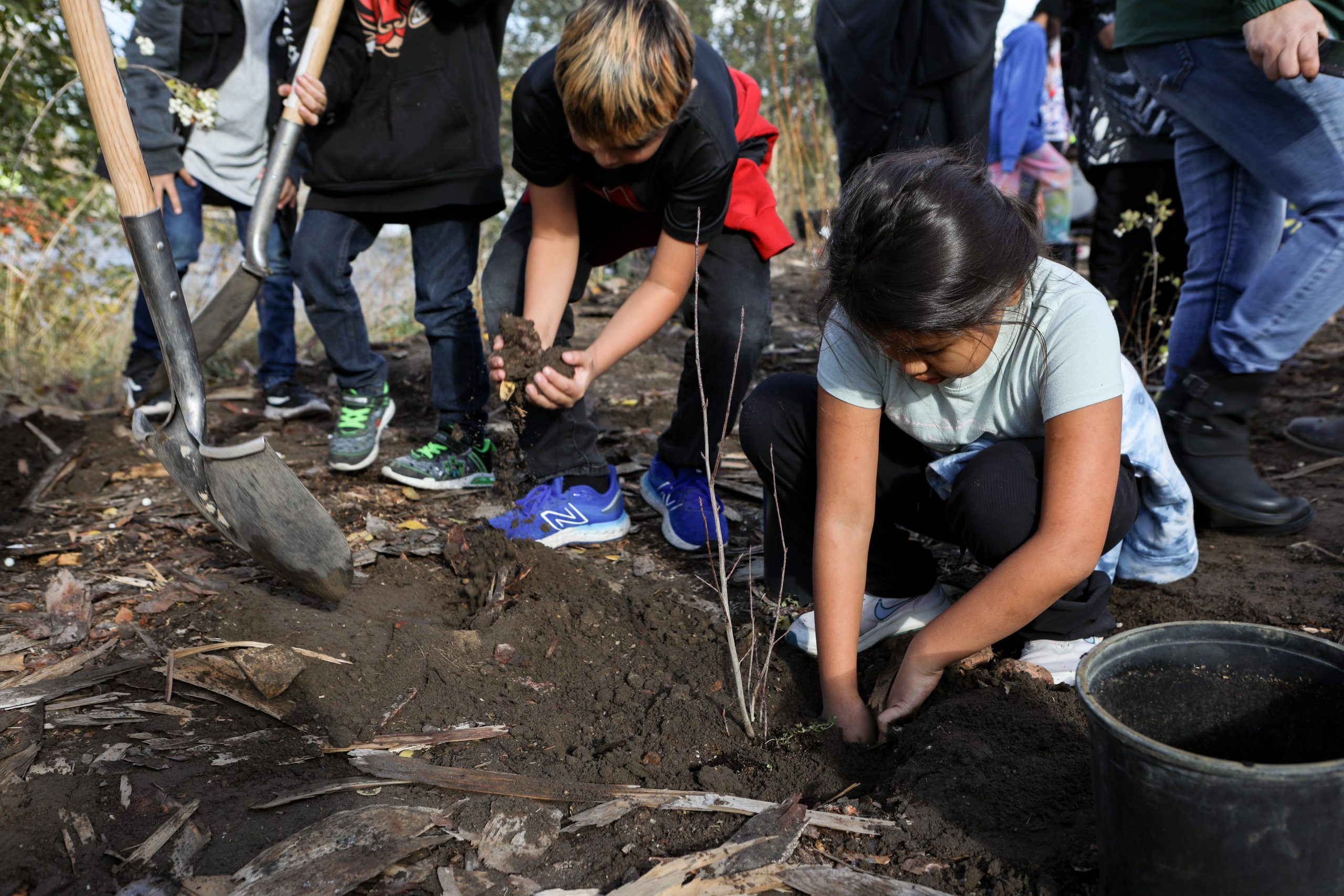Anti-Indigenous racism isn’t always overtly cruel — sometimes it’s delivered with a smile
Even at an event celebrating an Indigenous woman, I was made to feel as though I don’t belong


I recently attended a fundraiser luncheon at a high-end hotel in “Vancouver,” which was opened with a beautiful prayer from Dr. Elder Roberta Price — a well-known Coast Salish Elder.
As I was leaving the event feeling inspired, a white woman in the elevator smiled at me and thanked me for the prayer. That would be the prayer which I did not, in fact, give.
Maybe it was the braids, although Elder Roberta Price, whom the woman in the elevator had mistaken me for, did not have braids. In fact, her hair was buzzed short, and she donned a woven cedar headband.
Maybe it was the ribbon skirt with its pink feather pattern, which made it obvious to this woman that I was Indigenous, even though it was nothing like what Price had been wearing.
But this woman — presumably never having been in the same room with two Indigenous people before — presumed me, a Cree woman from the prairies, and this Elder were the same person.
The woman in the elevator smiled patronizingly at me and, for an instant, I was more concerned with how she would feel once her gaffe was understood, and worried that she would be embarrassed.
It was a familiar feeling: a mixture of pity and fawning that, as a survivor of emotional abuse, was still my instinctual response. Luckily, the feeling passed quickly.
“That wasn’t me…” I managed to sputter. Her companion, clearly mortified, put a hand on her shoulder and echoed, “That wasn’t her.” But the woman pressed on.
“Oh, but you must be a member of her family.” I closed my eyes and shook my head. The door opened and I shot out of there without looking back. I felt desperate to put space between the two women in the elevator and me.
I hurried along grey city streets to the closest SkyTrain station and got on a train. It wasn’t until I slid into my seat that the shock of the interaction wore off and the hurt kicked in. I felt a stinging in my eyes. I closed them and leaned back.
Being visibly Indigenous in public is always a bit scary for me. It’s risky, because there’s always the possibility of an interaction like the one in the elevator. I had known I was going to a place where I probably wouldn’t feel culturally safe: a fundraiser at a high-class hotel filled with folks who had limited exposure to Indigenous people and realities.
That’s why I had done my best to dress up: I had worn my expensive, embroidered blazer over my favourite ribbon skirt and put my hair into two neat braids. I had laughingly called this look “business traditional.” I had wanted to give myself the best chance of feeling comfortable in a crowd of high net-worth individuals.
Safe on the train, I texted two of my friends, describing what had just happened.
“Sounds about white,” one of my friends responded.
“Christ,” the other one texted.
“Did she also ask you if you were Buffy Sainte-Marie?” the first friend asked, and I had to laugh. I was grateful for that laughter medicine.
But what happened in the elevator had hurt me. That white woman’s words had temporarily stripped me of my sense of self. It didn’t matter that it was 2023, or that I had been at the fundraiser to hear Kwakwaka’wakw author, lawyer and former Member of Parliament Jody Wilson-Raybould — who was the event’s keynote speaker.
Nor did it matter that the Elder who gave the welcoming remarks and prayer was well-received by the audience. The fact that other Indigenous women at that gathering were treated well did not mean it was a safe space for me. To the woman in the elevator, I was just another Indian. In a space that has historically excluded Indigenous people, my presence was a source of confusion.
The term microaggression was originally coined in the 1970s by a psychiatrist from Harvard to describe the daily insults and dismissals he regularly witnessed non-Black Americans inflicting on Black Americans.
Now, the term is used more generally to describe hostile or derogatory attitudes towards any marginalized group. What I experienced in that elevator was a classic example of microaggression, but it didn’t feel small to me.
I suspect the term “micro” was ascribed to the perpetrators of these common, racist attitudes and not the target of them. Compared to overtly-violent acts of racism, I suppose, interactions like the ones I experienced might seem “micro.” But studies have shown that they don’t feel small to those of us on the receiving end of them. In fact, they can be just as harmful as more overt racism.
I had been looking forward to the luncheon. As a member of the press, I was invited to speak with Ms. Wilson-Raybould after the event. The food was delicious and Jody Wilson-Raybould was gracious and respectful during her time with us after her speech. But I guess there really is no such thing as a free lunch.
In this case, I paid with my dignity.
Editor’s note: An earlier version of this story incorrectly identified Jody Wilson-Raybould’s community as Kwak’wala, when in fact she is Kwakwaka’wakw. Kwak’wala is the language of the Kwakwaka’wakw People. IndigiNews regrets the error.
Author
Latest Stories
-
‘Bring her home’: How Buffalo Woman was identified as Ashlee Shingoose
The Anishininew mother as been missing since 2022 — now, her family is one step closer to bringing her home as the Province of Manitoba vows to search for her
-
Amid climate impacts, leading Secwépemc firekeeper shares ‘a better way of looking after the land’
In a time of worsening wildfires, Joe Gilchrist says cultural burning ‘needs to be multiplied hundreds of times’ — returning to Indigenous stewardship












